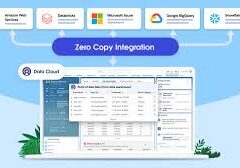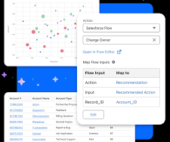From nearly scrapping Salesforce to full adoption across the entire organization, see how we helped a global manufacturing leader completely embrace the power of the platform across five different clouds.
manufacturing salesforce sales service marketing
Use Case:
We were introduced to this household name manufacturing company back in 2015 after they had a failed Salesforce implementation with another System Integrator. Our first order of business was to re-implement Salesforce along with creating a real time integration with their SAP system. Fast forward to today and we have successfully implemented over 50 projects, 5 Salesforce Clouds, upgraded their instance to Lightning and have had full time resources there supporting their Salesforce practice for 8 years.
Before we stepped in, this company was grappling with a fragmented data environment. Their sales and service teams had to rely on countless spreadsheets, and as you can imagine, this was not only tedious but also prone to errors. This lack of a unified data source meant they were unable to provide a cohesive customer experience, with sales and service teams often operating in silos.
manufacturing salesforce sales service marketing
Implemented
- Salesforce Sales Cloud
- Salesforce Service Cloud
- Marketing Cloud
- Partner Community (Experience Cloud)
- Pardot
- Lightning Migration
Technologies integrated
- SAP via Dell Boomi
Our solution? We integrated their SAP system into Salesforce using Dell Boomi as a middleware right off the bat. This had immediate and powerful effects. Our relationship expanded from there with not only 40+ projects completed to date but several other 3rd party integrations and 4 other Salesforce clouds completed along the way.
Centralization of Key Business Data: We channeled vital B2B accounts, customer data, order and quote information from SAP to Salesforce. This integration effectively put an end to the manual data scouring and ensured that all the necessary information was available at the teams’ fingertips, inside a single platform.
Enhanced Sales Process: Armed with this centralized data, their sales teams were now able to access real-time, accurate information. This sped up the sales process and improved the efficiency of the team as a whole.
Improved Customer Support: The integration also enhanced the service team’s ability to provide support. Having direct access to comprehensive customer data, including their purchase history and interactions, meant they could provide personalized and efficient service, boosting customer satisfaction.
If you are considering a Salesforce Manufacturing implementation, contact Tectonic today.













